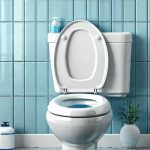Maintaining a comfortable and healthy lifestyle often involves navigating the practicalities of daily life – like household chores – while simultaneously prioritizing personal well-being. For many, this balancing act can become particularly complex when considering urinary health. The demands of cleaning, lifting, bending, and even prolonged standing inherent in housework can directly impact bladder function and contribute to conditions ranging from mild discomfort to more significant issues. Understanding the interplay between these everyday activities and our bodies is crucial for proactive self-care and maintaining a good quality of life. It’s not about eliminating chores; it’s about adapting how we approach them, making informed choices, and recognizing when to seek support.
This article aims to explore the often-overlooked connection between household tasks and urinary health, providing practical strategies and insights for managing both effectively. We will delve into how different types of chores can affect bladder control, discuss preventative measures you can implement, and outline ways to modify your routine to minimize strain on your urinary system. The goal isn’t just symptom management but fostering a sustainable approach to housework that respects your body’s needs and supports long-term urinary wellness. Ultimately, it’s about empowering you with the knowledge to live comfortably and actively without compromising your health.
Understanding the Connection: Chores & Your Bladder
Household chores, while necessary, frequently involve physical exertion that can put stress on the pelvic floor muscles – those essential structures supporting bladder control. Activities like vacuuming, mopping, scrubbing bathrooms, and even carrying laundry baskets all engage these muscles in varying degrees. When these muscles are weakened or overloaded, it can lead to urinary leakage (incontinence), a frequent urge to urinate, or difficulty emptying the bladder completely. The impact isn’t limited to those already experiencing urinary issues; consistent strain can contribute to developing problems over time. Think about repetitive bending for laundry – this increases abdominal pressure, directly impacting the bladder.
The type of chore also matters significantly. Heavy lifting, common in tasks like moving furniture or carrying groceries brought in from housework preparations (like grocery shopping after cleaning supplies), dramatically increases intra-abdominal pressure. This pressure is transmitted to the bladder and urethra, increasing the risk of stress incontinence – leakage that occurs with physical activity. Conversely, prolonged standing, as often required during ironing or dishwashing, can lead to venous pooling in the legs, reducing pelvic floor support and potentially exacerbating urinary symptoms. It’s a complex relationship where even seemingly minor tasks can have cumulative effects.
Beyond the direct mechanical impact on the bladder itself, certain cleaning products can also contribute to irritation. Harsh chemicals found in some household cleaners might irritate the urethra or bladder lining, causing inflammation and increased urgency. This is especially true for individuals with sensitive bladders or pre-existing urinary conditions. Therefore, mindful product selection is a vital component of protecting urinary health while managing household responsibilities. Prioritizing gentle cleaning solutions and adequate ventilation during use can make a significant difference.
Minimizing Strain During Cleaning Tasks
Adapting your cleaning routine to minimize strain on your urinary system doesn’t require drastic changes; it’s about incorporating mindful practices into your everyday activities. One key strategy is pacing yourself. Instead of trying to tackle an entire house in one go, break down tasks into smaller, more manageable chunks. This reduces the overall physical exertion and gives your pelvic floor muscles a chance to rest between bursts of activity. Schedule short breaks throughout cleaning sessions – even five minutes to sit and relax can make a difference.
Another important modification is technique. When lifting, bend at the knees instead of the waist to minimize abdominal pressure. Keep the load close to your body, and avoid twisting while carrying heavy items. For tasks involving prolonged standing, alternate shifting your weight from one leg to another or use a supportive cushion to reduce strain on your legs and pelvic floor. Consider investing in ergonomic tools – lightweight vacuum cleaners, long-handled dustpans, and adjustable mops can all help reduce physical exertion.
Finally, be mindful of hydration. While it might seem counterintuitive, staying adequately hydrated is crucial for urinary health. Dehydration concentrates urine, making it more irritating to the bladder. Aim to drink water consistently throughout the day, even during cleaning sessions. Avoid excessive caffeine and alcohol consumption, as these can also irritate the bladder and worsen urinary symptoms.
Product Choices & Their Impact
The chemicals in many common household cleaners can significantly impact urinary health, especially for those with sensitive bladders or existing conditions like interstitial cystitis (IC). Ingredients such as strong acids, alkalis, ammonia, and synthetic fragrances are known irritants. These substances can inflame the bladder lining, leading to increased frequency, urgency, and discomfort. Choosing gentler alternatives is a proactive step toward protecting your urinary system.
Look for cleaning products labeled “fragrance-free,” “dye-free,” and “hypoallergenic.” Consider using natural cleaning solutions like vinegar and baking soda – these are effective alternatives for many household tasks without the harsh chemicals. When using any cleaning product, ensure adequate ventilation by opening windows or using a fan to minimize exposure to fumes. Also, avoid direct contact with strong cleaners; wearing gloves can protect your skin and reduce the risk of irritation.
Beyond the primary cleaning agents themselves, pay attention to ingredients in laundry detergents and fabric softeners. Residue from these products can remain on clothing and come into contact with sensitive areas, potentially causing irritation. Opt for hypoallergenic laundry detergents specifically designed for sensitive skin. Consider skipping fabric softener altogether or using a natural alternative like vinegar in the rinse cycle.
Listening To Your Body & Seeking Support
Perhaps the most crucial aspect of balancing household chores and urinary health is paying attention to your body’s signals. Don’t ignore symptoms like increased frequency, urgency, leakage, or discomfort. These are signs that your bladder is under stress, and it’s time to adjust your routine accordingly. Rest when needed, modify tasks as described above, and prioritize self-care.
If urinary symptoms persist or worsen despite making lifestyle adjustments, seek professional help. A healthcare provider can accurately diagnose the underlying cause of your symptoms and recommend appropriate treatment options. This might include pelvic floor muscle exercises (Kegels), bladder training techniques, medication, or referral to a specialist like a urologist or pelvic floor physical therapist.
Remember that urinary health is an integral part of overall well-being. It’s not something to be ignored or endured in silence. By understanding the connection between household chores and your bladder, making mindful adjustments to your routine, and seeking support when needed, you can maintain both a clean home and a healthy, comfortable lifestyle. Taking proactive steps is key to long-term urinary wellness.





















